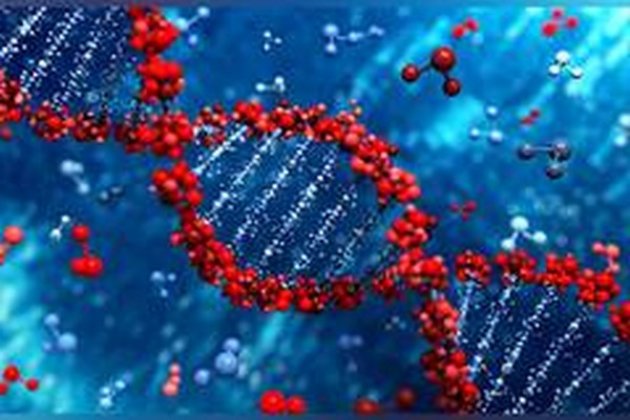

Washington [US], September 9 (ANI): Scientists have completed the largest study of families affected by Hodgkin lymphoma and identified novel variants linked to cancer predisposition.
Hodgkin lymphoma is a cancer of the lymphatic system (part of the immune system) that affects lymph nodes but can spread to the spleen, liver, bone marrow and lungs. As many as 7,000 new cases of the disease are diagnosed in the United States each year. Hodgkin lymphoma is the most common type of cancer in adolescents and has a five-year survival rate of 90-95%.
“We’ve never been able to tell these families anything other than its just bad luck because nobody knew why more than one family member would develop Hodgkin lymphoma,” said co-first and co-corresponding author Jamie Flerlage, M.D., St. Jude Department of Oncology. “We took on this study because understanding what is causing cancer in these families will help us to better counsel people about their chances of passing on genetic risk to their offspring, as well as help us identify novel targets that might potentially be used to create new treatments.”To study Hodgkin lymphoma occurrences in families, the researchers created pedigrees, a type of diagram that reveals familial connections while tracking the incidences of cancer. The selection criteria required two or more first-degree relatives with Hodgkin lymphoma, one of whom needed to be younger than 21 years of age when diagnosed.
Scientists performed whole genome sequencing on 234 members of 36 families and identified 44 variants (33 coding and 11 noncoding) that increase the risk of developing Hodgkin lymphoma. The findings included novel gene variants that had not been previously linked to predisposition to the disease such as PAX5, GATA3, IRF7, EEF2KMT and POLR1E as well as known variants such as KDR and KLHDC8B.
“Inherited variants can be an important missing piece of the puzzle when you’re trying to understand why certain people are more likely to get a type of cancer,” said co-corresponding author Jun J. Yang, Ph.D., St. Jude Comprehensive Cancer Center Hematologic Malignancies Program. “Whole genome sequencing that allows you to look beyond the main genetic variants to the non-coding or epigenetic variants is a powerful tool to help explain what puts a person at a higher risk of developing Hodgkin lymphoma.”A powerful bioinformatics pipeline created at St. Jude was essential to analyzing and tracking the variants through the family pedigrees. The process included running algorithms to identify the variants in every individual, and then taking the pedigree and tracing the variants back through the family tree to figure out which ones were related to the cancer. More than 40 annotation databases and pieces of software powered the effort, which resulted in a fast, robust pipeline to analyze familial data.
“We married several existing tools as well as customized approaches to make a pipeline that could process data from these families in a meaningful way,” said co-first author Jason Myers, St. Jude Center for Applied Bioinformatics. “The work that went into making this pipeline is not specific to Hodgkin lymphoma; the pipeline can be used for any other disease where families are involved, including other types of cancer and neurological disorders such as epilepsy.”The cohort of families included patients who were treated at St. Jude as well as many families who were part of a familial lifetime cohort study pioneered by the National Cancer Institute. The analysis revealed inherited variants likely to predispose individuals to the disease in most of the families, highlighting the important role of genetic predisposition in understanding Hodgkin lymphoma.
“The family pedigrees and whole genome sequencing approach set this study apart because they allowed us to throw everything in our genomics toolkit at this question to tease apart what was happening in each family,” said co-corresponding author Evadnie Rampersaund, PhD, St. Jude Center for Applied Bioinformatics. “We had the amazing opportunity to develop a highly comprehensive bioinformatic pipeline for interrogating coding, noncoding and copy-number variants in families. This project was a large-scale collaboration that shines brightly on the interconnective opportunities and talents within St. Jude.” (ANI)
24World Media does not take any responsibility of the information you see on this page. The content this page contains is from independent third-party content provider. If you have any concerns regarding the content, please free to write us here: contact@24worldmedia.com

A Brief Look at the History of Telematics and Vehicles

Tips for Helping Your Students Learn More Efficiently

How To Diagnose Common Diesel Engine Problems Like a Pro

4 Common Myths About Wildland Firefighting Debunked

Is It Possible To Modernize Off-Grid Living?

4 Advantages of Owning Your Own Dump Truck

5 Characteristics of Truth and Consequences in NM

How To Make Your Wedding More Accessible

Ensure Large-Format Printing Success With These Tips

4 Reasons To Consider an Artificial Lawn

The Importance of Industrial Bearings in Manufacturing

5 Tips for Getting Your First Product Out the Door